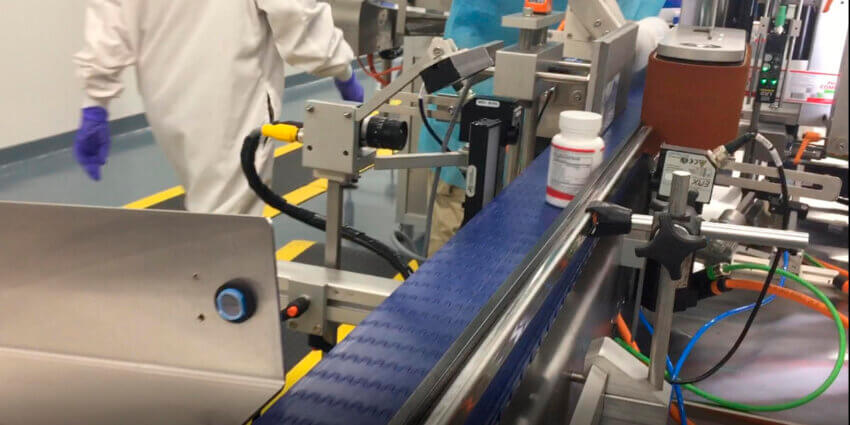How does one tell a quality supplement from one of poor quality? Well, without testing you really can’t. This is why we have to depend on third party testing. A no-name supplement may be perfectly fine, but you really can’t just take their word for it. Often companies rely on their suppliers in-house testing, and that supplier might be in a country where quality testing is often faked (not to pick on one country, but Chinese suppliers are well known for this).
In the US we depend on FDA regulations and ISO standards (which often get codified by the FDA). One of those standards is the International Organization for Standardization ISO 17025. This standard applies to Testing and Calibration of Laboratory equipment. Testing in a lab with poorly calibrated equipment is not much better than no testing at all.
ISO/IEC 17025
“enables laboratories to demonstrate that they operate competently and generate valid results, thereby promoting confidence in their work both nationally and around the world.” – ISO.org
In 2020 Amazon began requiring all supplements sold on their platform to be ISO 17025 certified.
“Only 10 third-party certification programs like the one operated by National Sanitation Foundation (NSF) are accepted by Amazon. The accepted third-party certification gives Amazon assurance that the product is manufactured under current good manufacturing practices (GMP).” – CLA Testing
You want to make sure that the products you purchase aren’t only ISO 17025 certified, but that the independent lab doing the certification is large, established, and trusted (such as NSF.org).
ISO 9001 certification
“The ISO 9000 family of quality management systems is a set of standards that helps organizations ensure they meet customer and other stakeholder needs within statutory and regulatory requirements related to a product or service… Third-party certification bodies provide independent confirmation that organizations meet the requirements of ISO 9001.” – Wikipedia
GMP / cGMP
“Good manufacturing practices (GMP) are the practices required in order to conform to the guidelines recommended by agencies that control the authorization and licensing of the manufacture and sale of food and beverages, cosmetics, pharmaceutical products, dietary supplements, and medical devices.” – Wikipedia
“GMPs are enforced in the United States by the U.S. Food and Drug Administration (FDA), under Title 21 CFR. The regulations use the phrase “current good manufacturing practices” (CGMP) to describe these guidelines.” A product must meet GMP standards and be independently tested to be certified as FDA cGMP compliant.
If the supplement you are looking at doesn’t brag about these certifications, poke around on their website and see if they mention them there. If you don’t see mention of these certifications you probably should consider another brand.
Research
Another thing to look for are research studies of the ingredients, especially if it’s a unique formula. For example, the phage complex in Phage Complete (Preforpro) is mentioned in 41 studies/papers on PubMed (all in a very positive light by the way). Of these I would say probably 10-15 of these are studies about the complex itself, and the rest of the studies simply mention it in passing. The Bacillus Subtilis DE111 strain is listed in 93 research studies/papers. If a company is making claims about their product these claims should be backed up by independent research.
There are many examples out there of supplements that are either adulterated (contains something not listed on the label, perhaps something unhealthy) or do not contain the amount of product listed. NOW foods recently released the results of testing they did on products listed on Amazon, the biggest issue found was that most did not contain the amount of product listed.
“The company began the testing program several years ago after becoming aware of how few supplement brands sold on Amazon met minimum quality standards. The program has been recognized by several industry awards, including NutraIngredients-USA’s Industry Initiative of the Year in 2021… In the most recent round of testing NOW retested eight CoQ10 brands sold on Amazon that were previously examined in 2020. The company found that quality problems persisted for seven of the eight brands. In addition, the company noticed a new labeling discrepancy that had not been observed before… NOW tested 23 different brands claiming quercetin content on the labels and found that only three met label claim for potency.” – nutraingredients-usa.com
Certificate of Analysis (COA)
Always look for a COA and make sure it is from an accredited source (otherwise its almost useless). This tells you that the product was tested to contain what the label says and contains no listed toxins or unwanted microbes. If they don’t provide a COA there is probably a reason.
Phage Complete
The company that supplies the raw ingredients and bottles Phage Complete meets all of the above requirements. They are independently tested by NSF.org, one of the largest 3rd party testing companies in the world (and one of only 10 trusted by Amazon). Each lot of Phage Complete is tested and we post the official Certificate of Analysis on our website for each lot. Phage Complete is guaranteed to have the bottle listed CFUs (colony forming units) of the listed probiotics for 18 months from manufacturing (the date on the bottom of the bottle).
- Phage Complete Ordering Page – Domestic and International Ordering
- Phage Complete Information / Benefits Page – The unique phage enhanced probiotic that has helped thousands!
- Phage Complete Testimonials – These are just a few of the testimonials that come in daily.
- Deerland Probiotics certifications – this is the company that supplies the raw ingredients for Phage Complete and does the bottling. This page lists their certifications and accreditations (and this doesn’t include the FDA certification and random testing).
All images posted by John Herron are either "Copyrighted John Herron", or are copyrighted by someone else and are used under license. So please don’t use them elsewhere, you’ll get in trouble.


 Phage Complete comes with a full 30 day money back guarantee, for U.S. purchases this includes the original shipping charges to you!
Phage Complete comes with a full 30 day money back guarantee, for U.S. purchases this includes the original shipping charges to you!